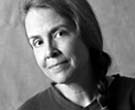
UNRWA marks International Women’s Day 2010
Equal Rights, Equal Opportunities: Progress for All
8 March 2010
Monday 8 March 2010 is International Women’s Day. It is a global day to recognise and celebrate women’s achievements, and to look ahead to the opportunities that await future generations.
The United Nations Relief and Works Agency (UNRWA) is marking the day with events across its five fields, including bazaars, workshops and film screenings.
Over the next week we will profile stories of refugee women UNRWA has helped.
From School Drop-Outs to Star Students: Girl Power in Lebanon
8 March 2010
Sidon, Lebanon
 Walaa and Hanadi are close friends, having grown up together in the Ein el Hillweh camp near Sidon, in Lebanon. Both girls left school very young, and long before they completed their education. Low self-esteem and decreased ambition were swift to follow.
Walaa and Hanadi are close friends, having grown up together in the Ein el Hillweh camp near Sidon, in Lebanon. Both girls left school very young, and long before they completed their education. Low self-esteem and decreased ambition were swift to follow.
“Being an underachiever, repeating classes and having a low performance record all led me to leave school and stay at home,” says Hanadi. ”I felt that my life had ended, my future was ruined. I’d completely lost hope.”
Help was at hand, however, through a programme for school drop-outs run by the United Nations Relief and Work Agency for Palestine Refugees in the Near East (UNRWA), with funding from the European Union.
 Walaa explains a bit more about the programme: “I had stayed at home for six months without school and without a job until the school principal invited me to meet with officials from this scheme. They offered me a choice: either return to school, or enrol in a vocational major of my choice to work towards a profession. I chose to work towards a qualification in photography and editing.”
Walaa explains a bit more about the programme: “I had stayed at home for six months without school and without a job until the school principal invited me to meet with officials from this scheme. They offered me a choice: either return to school, or enrol in a vocational major of my choice to work towards a profession. I chose to work towards a qualification in photography and editing.”
Together, the two friends joined the same special one-year programme, studying and doing practical training in a fully functioning photographic studio. Both are now happily employed in a studio in the city of Sidon.
Looking back, are the girls happy with the choices they’ve made since dropping out of school? Hanadi is in no doubt that the programme helped her regain confidence and get a helping hand to a career. She says: “I would advise everyone to learn a profession in case they are unable to continue academic schooling.”
“I am very happy working in this field,” says Walaa. “It is so nice to be working in an arts-related profession.”
The director of the studio is equally satisfied with his new employees. He says: “Walaa and Hanadi are such quick learners and very active. They really are dedicated and highly motivated to improve in this profession.”
Hanadi chips in to offer a closing assessment. “Thanks to the drop-out programme, my life has changed, and for the better,” she says. “Because I go out to work everyday, I have regained hope – I know the value of my existence in society.”
Rana Saleh: “I dreamed of completing my education”
8 March 2010
Beddawi, Lebanon
 To mark International Women’s Day, 27-year-old Rana Saleh explains how she overcame a difficulty upbringing to become the sole provider for her family – and an acclaimed seamstress.
To mark International Women’s Day, 27-year-old Rana Saleh explains how she overcame a difficulty upbringing to become the sole provider for her family – and an acclaimed seamstress.
Rana, from Beddawi camp, left school at 15, after her mother, who suffers from schizophrenia, had her youngest sister. Rana says: “I had to take care of my newborn sister because of my mother’s ailment and my father’s blindness.
“I started learning sewing at an early age because of my family’s difficult economic situation.” Rana’s family – her parents, four sisters and one brother – were classed by UNRWA as special hardship cases.
Sewing and fashion
"I found myself looking for a career to be able to provide for them,” she says. “In 2000, I signed up to a year-long course in sewing and fashion design at UNRWA’s Multi-Purpose Community Development Centre in Beddawi camp. Once I could earn, I could help my family.”
She discovered a love for sewing and studying: "My ambition had no limits. I loved learning about everything – I even studied curtain design. It was fun to learn how to make suitable dresses for women and clothes in general."
Sole provider
As the sole provider for her family, Rana has helped support her sisters’ education. “I liked having a role in improving my family's condition and not to live on the support of others."
"The centre gives me a lot of support, not only in securing work there, but also moral and emotional support. Having left school early, I dreamed of completing my education."
Her sewing work also allows Rana to pay back the UNRWA loans that have been an important lifeline for the Saleh family. She has already repaid two loans for her brother's treatment after he was hurt in an accident, and for home improvement.
“Proud”
In appreciation of the opportunities she had, Rana’s desire to give back goes beyond her family. As a trainer in the centre, she is helping new girls find a way to get on their feet. "I feel proud because [as I train] new girls in sewing, I always remember the trainers who taught me,” she says.
Rana’s fame as an excellent seamstress has spread throughout the camp. She is an example to the girls and women following in her footsteps. A strong advocate for women's access to the workforce, Rana encourages girls in her community to work even after marriage. As she explains: "Work is important for our life."
Summing up her experiences, Rana concludes with a Chinese proverb: "Teach me to fish rather than give me fish."
Text by Maysoun Mustafa, Beddawi camp information officer
On International Women's Day, UNRWA and the EU Celebrate Palestinian Women


8 March 2010
East Jerusalem
| 
Alia Arasoughly, Palestinian film producer
and head of womens’ NGO Shashat
|
The United Nations Relief and Works Agency for Palestine Refugees in the Near East (UNRWA) today kicked off a week of celebrations in honour of International Women’s Day, 8 March 2010.
Workers at the Agency’s main compound in East Jerusalem were treated to a visit by the Palestinian cinema NGO Shashat. After a speech by Barbara Shenstone, the director of UNRWA’s operations in the West Bank, came a screening of the film Far from Loneliness, which follows the tough pre-dawn journey of three older farming women from their fields to the vegetable markets, as they tell of their relationship to the land. The screening was followed by a lively discussion, led by director Sawsan Qaoud and producer Alia Arasoughly.
Qaoud’s film is one of four produced by Shashat as part of their ambitious 'Masarat’ project, supported by funding from the European Union. The project aims to encourage public debate on women’s lives in the occupied Palestinian territory, using film as a way to engage a wider audience from diverse social, economic and educational backgrounds. Yesterday’s event was the first in a series of similar events planned throughout UNRWA’s five fields of operation, as part of the Agency’s efforts to achieve gender equality within all its operations and programmes, and among staff and beneficiaries alike.
Meanwhile, further celebrations got under way in Lebanon and Jerusalem, with events showcasing the achievements of UNRWA’s female beneficiaries and exhibiting Palestinian-made products. A special event in East Jerusalem will tomorrow launch a week-long bazaar of goods produced by Palestinian women under the auspices of UNRWA’s job creation programme (JCP), which ensures work for the most vulnerable West Bank refugees.
The programme’s cash-for-work project, made possible by donors including the European Commission’s Humanitarian Aid department (ECHO), and the governments of Sweden, Belgium and the US, actively targets female refugees by providing work opportunities to suit social values, and which are physically accessible to women. The event will run at the East Jerusalem YWCA until 11 March in celebration of the achievements of the project’s female employees.
Background
UNRWA provides assistance and protection to Palestine refugees in Jordan, Lebanon, Syria and the occupied Palestinian territory, pending a just and lasting solution to their plight. It does so by offering to a population of some 4.7 million refugees a range of human development and humanitarian services in primary and vocational education, primary health care, social safety-net, community support, infrastructure and camp improvement, microfinance and emergency response, including in situations of armed conflict. UNRWA’s role also encompasses advocacy and actions to address the human rights and protection needs of Palestine refugees. UNRWA is funded almost entirely by voluntary contributions from UN member states.
The European Union is the largest multilateral provider of international assistance to Palestine refugees. Over the period 2000 to 2009, the EU, excluding EU member states, alone has provided more than €1 billion of support to the Agency. The EU and its Member States provided 62 per cent of support to the General Fund in 2009. This funding has enabled human development for the most vulnerable Palestine refugees in Gaza, the West Bank, Jordan, Lebanon and Syria.
Masarat is an ambitious Palestinian media project by the Palestinian cinema NGO Shashat, and funded by the European Union. The project aims to promote awareness of the resiliency and strength of Palestinian women and encouraging public debate of some of their lives. The four films focus on women and young girls from diverse walks of life addressing the complexity of women’s lives in Palestine. Each of the films is unique in its style and subject matter and focuses on women from different social, economic backgrounds and of different generations. An extensive and diverse network of community, cultural and educational institutions in the West Bank and Gaza Strip as well as independent media outlets were involved in the project. The four films are Ghada Terawi’s Golden Pomegranate Seeds, Sawsan Qaoud’s Far from Loneliness and Mahasen Nasser-Eldin’s Samia, and Dima Abu Ghoush’s First Love.
For more information on UNRWA
West Bank Gender Officer: Rea Bonzi, +972 (0)2 589 0456
r.bonzi@unrwa.org
Spokesperson: Chris Gunness, +97 2(0)54 240 2659
c.gunness@unrwa.org
For more information on the EU's assistance to the occupied Palestinian territory
Shadi Othman, +972 (0)2 541 5888 ext 867
shadi.othman@ec.europa.eu
For more information on Shashat and the Masarat project
Alia Arasoughly, +972-2)297-3337
alia@shashat.org




 Amal Moh’d Fayyad’s eldest son has been in prison in Israel for seven years, but she is unable to leave Gaza to visit him because of the blockade of the Strip. Amal cannot even write him letters because she cannot read or write, having left school at 14.
Amal Moh’d Fayyad’s eldest son has been in prison in Israel for seven years, but she is unable to leave Gaza to visit him because of the blockade of the Strip. Amal cannot even write him letters because she cannot read or write, having left school at 14. After family problems caused her stress and depression, Ibtisam Akieleh found support with a group of other Gazan women – and realised she was not alone. With this help, and her own willpower, Ibtisam was able to come off her medication.
After family problems caused her stress and depression, Ibtisam Akieleh found support with a group of other Gazan women – and realised she was not alone. With this help, and her own willpower, Ibtisam was able to come off her medication. Women from the destroyed Nahr el-Bared camp (NBC) in Lebanon are rebuilding their lives – and their businesses – thanks to specialised training courses.
Women from the destroyed Nahr el-Bared camp (NBC) in Lebanon are rebuilding their lives – and their businesses – thanks to specialised training courses. Sisters Ahlam (34) and Ayda (30), students on the popular hairdressing course, plan to open their own salon. Ahlam’s small grocery was destroyed during the conflict. The training, she says: “provided encouragement for us financially and mentally to open our own shop. We have high spirits about it.”
Sisters Ahlam (34) and Ayda (30), students on the popular hairdressing course, plan to open their own salon. Ahlam’s small grocery was destroyed during the conflict. The training, she says: “provided encouragement for us financially and mentally to open our own shop. We have high spirits about it.” After years of being unable to contact her son in Algeria, 65-year-old Gazan Amena Al Ajrami has learned to use computers to communicate with her son and grandchildren.
After years of being unable to contact her son in Algeria, 65-year-old Gazan Amena Al Ajrami has learned to use computers to communicate with her son and grandchildren. Amena decided to start a computer course at Jabalia Women’s Programme Centre, so she could use the internet to keep in touch with her son and grandchildren. She said: “Yesterday was the first time I saw my grandchildren since 1995. You cannot imagine how happy I was, and proud at the same time."
Amena decided to start a computer course at Jabalia Women’s Programme Centre, so she could use the internet to keep in touch with her son and grandchildren. She said: “Yesterday was the first time I saw my grandchildren since 1995. You cannot imagine how happy I was, and proud at the same time."



























 Walaa and Hanadi are close friends, having grown up together in the Ein el Hillweh camp near Sidon, in Lebanon. Both girls left school very young, and long before they completed their education. Low self-esteem and decreased ambition were swift to follow.
Walaa and Hanadi are close friends, having grown up together in the Ein el Hillweh camp near Sidon, in Lebanon. Both girls left school very young, and long before they completed their education. Low self-esteem and decreased ambition were swift to follow. Walaa explains a bit more about the programme: “I had stayed at home for six months without school and without a job until the school principal invited me to meet with officials from this scheme. They offered me a choice: either return to school, or enrol in a vocational major of my choice to work towards a profession. I chose to work towards a qualification in photography and editing.”
Walaa explains a bit more about the programme: “I had stayed at home for six months without school and without a job until the school principal invited me to meet with officials from this scheme. They offered me a choice: either return to school, or enrol in a vocational major of my choice to work towards a profession. I chose to work towards a qualification in photography and editing.” To mark International Women’s Day, 27-year-old Rana Saleh explains how she overcame a difficulty upbringing to become the sole provider for her family – and an acclaimed seamstress.
To mark International Women’s Day, 27-year-old Rana Saleh explains how she overcame a difficulty upbringing to become the sole provider for her family – and an acclaimed seamstress.





Famous
by Naomi Shihab Nye
The river is famous to the fish.
The loud voice is famous to silence,
which knew it would inherit the earth
before anybody said so.
The cat sleeping on the fence is famous to the birds
watching him from the birdhouse.
The tear is famous, briefly, to the cheek.
The idea you carry close to your bosom
is famous to your bosom.
The boot is famous to the earth,
more famous than the dress shoe,
which is famous only to floors.
The bent photograph is famous to the one who carries it
and not at all famous to the one who is pictured.
I want to be famous to shuffling men
who smile while crossing streets,
sticky children in grocery lines,
famous as the one who smiled back.
I want to be famous in the way a pulley is famous,
or a buttonhole, not because it did anything spectacular,
but because it never forgot what it could do.